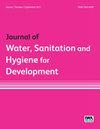Reducing sexual violence through safe sanitation?
IF 1.4
4区 环境科学与生态学
Q3 WATER RESOURCES
Journal of Water Sanitation and Hygiene for Development
Pub Date : 2022-10-18
DOI:10.2166/washdev.2022.023
引用次数: 1
Abstract
Reliable access to safe sanitation is a cornerstone of human health and gender equality. Over the last 10 years, the risks of sexual violence and sexual harassment (SVSH) associated with inadequate access to household latrines have received considerable attention. This is especially true of studies on seeking sanitation under cover of darkness. Here I examine the evidentiary basis of claims that incidences of SVSH can be reduced with better access to latrines. I focus on SVSH towards women and girls, though all genders can face sexual violence. I argue that promoting household (or on premises) latrines as a protection against sexual violence cements entrenched biases about ‘good’ girls, ‘true’ rape, and the place of women in public spaces. Thus, arguments claiming that latrine construction is an important tool against SVSH, while gender-sensitive in intent, can be misogynistic in impact.通过安全卫生设施减少性暴力?
可靠地获得安全卫生设施是人类健康和性别平等的基石。在过去十年中,与家庭厕所使用不足有关的性暴力和性骚扰风险受到了相当大的关注。在黑暗的掩护下寻找卫生设施的研究尤其如此。在这里,我审查的证据基础声称,SVSH的发生率可以减少与更好的厕所。我关注的是针对妇女和女孩的性暴力,尽管所有性别都可能面临性暴力。我认为,促进家庭(或场所)厕所作为防止性暴力的保护,巩固了关于“好”女孩、“真正”强奸和妇女在公共场所地位的根深蒂固的偏见。因此,声称厕所建设是反对SVSH的重要工具的论点,虽然在意图上对性别敏感,但在影响上可能是厌恶女性的。
本文章由计算机程序翻译,如有差异,请以英文原文为准。
求助全文
约1分钟内获得全文
求助全文
来源期刊

Journal of Water Sanitation and Hygiene for Development
WATER RESOURCES-
CiteScore
3.10
自引率
11.80%
发文量
58
审稿时长
16 weeks
期刊介绍:
The Journal of Water, Sanitation and Hygiene for Development is a peer-reviewed journal devoted to the dissemination of high-quality information on the science, policy and practice of drinking-water supply, sanitation and hygiene at local, national and international levels.
 求助内容:
求助内容: 应助结果提醒方式:
应助结果提醒方式:


